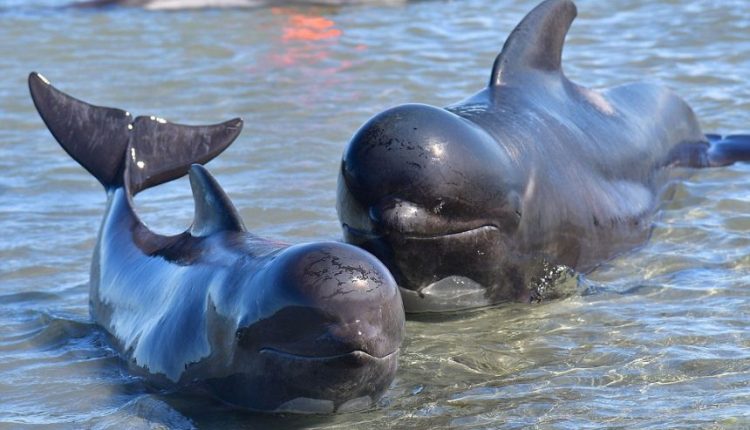Po potvynio šimtai Naujosios Zelandijos paplūdimyje įstrigusių banginių grįžo į jūrą
Daugiau nei dviem šimtams Naujosios Zelandijos paplūdimyje prie Auksinės įlankos įstrigusių banginių pavyko išsilaisvinti ir grįžti atgal į jūrą, praneša BBC.
Maždaug 240 banginių, kurie buvo įstrigę prie Pietų salos, vėlyvą šeštadienio vakarą išsivadavo iš seklumos kartu su atsiritusia potvynio banga.
Šiuo metu jie vis dar laikosi vandenyje aplink seklumas, todėl gamtosaugos specialistai įspėja, kad gyvūnai gali vėl išplaukti į nerijos seklumą.
Savanoriams gelbėtojams kiek anksčiau pavyko padėti maždaug 100 iš 400 ketvirtadienį ant kranto įstrigusių banginių išplaukti iš seklumos. Bet, nepaisant gelbėtojų pastangų, į krantą vėliau išplaukė naujas pulkas banginių.
Daugiau kaip 300 iš 400 pačių pirmųjų įstrigusių banginių nudvėsė, nors žmonės ir gelbėtojai bandė išsaugoti gyvūnų gyvybes vėsindami juos vandeniu.
Kol kas neaišku, kodėl banginiai vis plūsta į 5 km ilgio paplūdimį netoli Auksinės įlankos. Spėjama, kad galbūt juos taip elgtis verčia ryklių atakos, nes ant vieno išplaukusių banginių kūnų buvo rasta kandžiojimo žymių.










